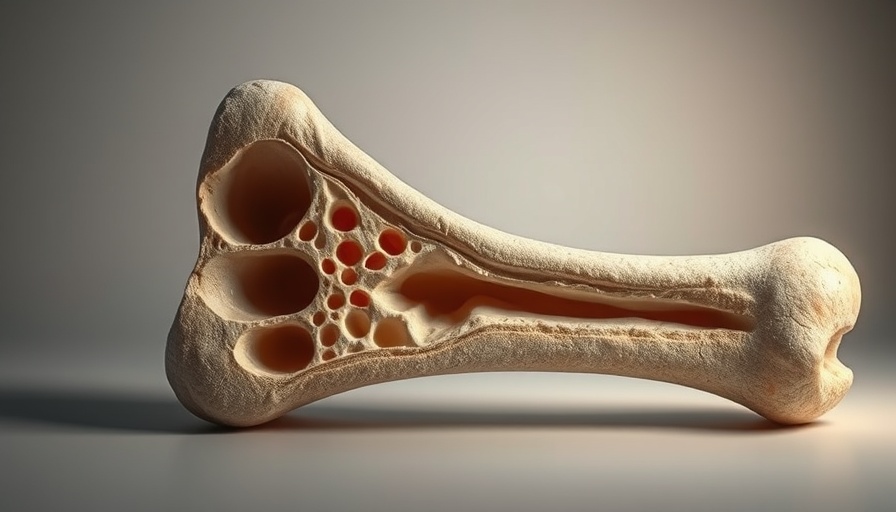
Understanding the Link Between Lipids and Bone Health
Recent research emphasizes a fascinating yet alarming connection between lipid buildup in the body and bone health. As professionals and fitness enthusiasts, the imperative to maintain robust bone density goes beyond lifting weights in the gym; it extends to what we’re putting into our bodies. This connection is crucial for anyone looking to foster strong bones, especially for men in the 35-55 age range who often prioritize physical strength and fitness.
What Are Lipids and Their Role in the Body?
Lipids are a broad category of molecules that include fats, which help the body store energy, cushion vital organs, and enhance nutrient absorption. However, recent studies indicate that an excessive accumulation of lipids can signal trouble, particularly concerning our skeletal health. It's important to understand that while some fat is essential, crossing certain thresholds can lead to adverse health conditions.
Bone Density and Health: Why It Matters
Bone density is the measure of how much bone mass is present in a specific volume of bone. For those of us who are athletic or physically active, maintaining a strong bone density is non-negotiable—it helps prevent fractures and supports overall mobility. As men in this demographic age, the risk of osteoporosis and weakened bones increases, making proactive measures vital.
New Findings: Lipid Buildup and Bone Weakness
The latest findings show that a specific threshold of lipid accumulation can result in deteriorating bone quality. This points to a direct relationship where once lipid levels surpass a certain limit, bone strength is compromised. Adapting lifestyle and dietary choices is essential for mitigating lipid buildup, and in turn, safeguarding bone integrity.
Practical Insights: What You Can Do
1. Monitor Your Lipid Levels: Regular health check-ups can help identify lipid levels early. If you’re in the high-risk demographic, consulting with healthcare professionals can provide tailored strategies for managing your everyday diet.
2. Incorporate Omega-3 Fatty Acids: These healthy fats found in fish and flaxseed can help manage lipid levels effectively while also supporting heart and bone health.
3. Engage in Weight-Bearing Activities: Strength training isn’t just for bulking up; it has proven benefits for your bones. Engaging with weights, resistance bands, or body-weight exercises regularly fosters stronger bones by creating stress that encourages growth and strengthens skeletal integrity.
Future Trends in Bone Health Research
The trajectory of research on bone health and lipids indicates a growing focus on personalized health approaches. We may soon see innovations that allow for tailored nutritional and fitness regimens based on individual lipid profiles, leading to safer and more effective methods of maintaining bone health.
Final Thoughts: Embrace Proactive Health Strategies
For those who cherish an active lifestyle, understanding the implications of lipid levels and their effect on bone strength is crucial. It's more than just fitness; it’s about longevity and ensuring that your body can support your active lifestyle for years to come. By staying informed and taking active steps in health management, we can help ourselves and our loved ones maintain a healthy and vibrant life.
Take action today by speaking to a healthcare provider about your lipid levels and expressing any concerns regarding your bone health.
 Add Row
Add Row  Add
Add 




Write A Comment